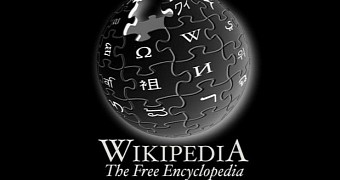Last Friday, August 14, researchers led by Gene E. Likens at the University of Connecticut published a study discussing Wikipedia, everybody's favorite online encyclopedia.
The study, available in the journal PLOS ONE, shows that, as a rule, Wikipedia articles on controversial scientific topics such as global warming, evolution and acid rain are edited more often than articles on non-controversial scientific topics.
Hence, it's safe to assume that this type of articles are vulnerable to gross inaccuracies and maybe even information sabotage, and therefore not reliable, the researchers reasoned.
“Wikipedia's acid rain entry receives near-daily edits, some of which result in egregious errors and a distortion of consensus science,” study lead author Gene E. Likens said in a statement.
“As society turns to Wikipedia for answers, students, educators, and citizens should understand its limitations when researching scientific topics that are politically charged,” he added.
The folks behind Wikipedia disagree
Shortly after Gene E. Likens' and his colleagues' claims grabbed headlines, the Wikimedia Foundation, the non-profit supporting the encyclopedia, issued a statement refuting the study. Well, not the entire paper, just parts of it.
The Wikimedia Foundation admits that, as shown by the University of Connecticut team, entries on controversial scientific issues are in fact edited more often than articles on well documented scientific phenomena and facts.
All the same, this does not make the articles inaccurate or unreliable. Not when volunteer editors are forever on the lookout, making sure whatever mishaps occur are dealt with promptly.
Admittedly, information sabotage and vandalism can happen. Still, content is forever monitored and so whatever inaccuracies sometimes appear in certain articles are swiftly removed.
“Although vandalism and inaccuracies can occur, its community of volunteer editors has established mechanisms to ensure that the vast majority of inaccurate content is addressed within minutes,” the Wikimedia Foundation says.
Besides, there is no evidence that entries that are edited more often than others are intrinsically more inaccurate simply because people seem to like altering them and adding or removing information.
On the contrary, the Wikimedia Foundation references a 2007 study and then a 2013 investigation showing that more edits correlate with articles of a better quality.

 14 DAY TRIAL //
14 DAY TRIAL //